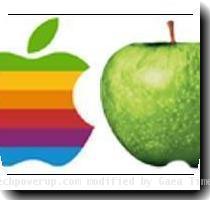Stocks resume drop as weak forecasts from technology companies add to concerns about economy
By Tim Paradis, APThursday, January 28, 2010
Disappointing tech forecasts drag stocks lower
NEW YORK — The stock market resumed its slide Thursday as disappointing forecasts from technology companies brought new concerns about the economy.
A weaker outlook from technology maker Qualcomm Inc. dragged the Nasdaq composite index lower. Drops in Motorola Inc. and Apple Inc. also hurt tech stocks. The Dow Jones industrial average fell almost 116 points, its sixth loss in nine days.
Technology shares could get a bounce Friday from Amazon.com Inc. and Microsoft Corp., which posted improved earnings after the closing bell. Their stocks rose in after-hours electronic trading.
The market’s drop Thursday also came in response to a report from Standard & Poor’s that said it no longer considers Britain’s banking system among the “most stable and low-risk.” The report added to recent concern about rising debt levels in countries such as Greece and drove the dollar higher as investors sought safety. That sent some commodities prices lower, hurting materials stocks.
The tech forecasts and bank worries were yet more concerns for investors who have been focused on politics, not the economy. Stocks have been sliding as concern builds that a fragile economic recovery could be derailed by missteps in Washington. The questions have some analysts saying that a 10-month surge of 60.3 percent in the Standard & Poor’s 500 index isn’t warranted.
President Barack Obama’s plan to overhaul banking regulations and restrict trading at large financial institutions spooked the market during the past week. The possibility that Federal Reserve Board chairman Ben Bernanke wouldn’t be confirmed for a second term also had investors on edge, though those worries eased as the vote neared. The Senate confirmed Bernanke for a second term as the market was closing. His first four-year term ends Sunday.
“Our full-contact politics is really beginning to affect the markets as it’s migrating into subjects that investors care deeply about, like who is our Fed chairman going to be,” said Lawrence Creatura, portfolio manager at Federated Clover Investment Advisors. “That wasn’t uncertain two weeks ago.”
During his State of the Union address Wednesday, Obama avoided talking about the banking overhaul plan. Uncertainty over details of how that might be enacted are adding to investors’ jitters.
Concerns about the economy are also creeping back to the forefront. The Fed said Wednesday it would keep interest rates at historic lows and that the economy was showing signs of improvement. That helped stocks reverse a slide to end higher.
The enthusiasm faded Thursday after the Labor Department said jobless claims decreased by less than expected last week and the Commerce Department reported durable goods orders didn’t rise as fast as anticipated last month. The reports provided reminders that the economic recovery is likely to be slow.
The Dow fell 115.70, or 1.1 percent, to 10,120.46. The drop put the psychological barrier of 10,000 back in investors’ sights. The Dow, which had been down as much as 181 points Thursday, hasn’t traded below 10,000 since Nov. 6.
The Standard & Poor’s 500 index fell 12.97, or 1.2 percent, to 1,084.53, while the Nasdaq fell 42.41, or 1.9 percent, to 2,179.00.
The recent drop in stocks is worrisome for some analysts because Friday is the last trading day of January. Traders often note that as goes January, so goes the year. The so-called January barometer holds that the performance of the S&P 500 index in January is a predictor of how stocks will end the year. There have been only five major errors since 1950, for an accuracy rate of 91.5 percent, according to the Stock Trader’s Almanac.
The S&P 500 index is down 2.7 percent for January. It is down 5.7 percent since closing at a 15-month high last week. That is still short of a correction, which is generally defined as a drop of at least 10 percent.
Bond prices rose, pushing yields lower. The yield on the benchmark 10-year Treasury note fell to 3.64 percent from 3.66 percent late Wednesday.
The dollar rose against other major currencies, while gold fell.
Crude oil fell 3 cents to settle at $73.64 per barrel on the New York Mercantile Exchange.
Jason Weisberg, director of institutional trading at Seaport Securities Corp. in New York, said the concerns about how Washington will change the rules for banks and steer the economy are overshadowing profit reports that are stronger.
“There is a disconnect between corporate earnings forecasts and guidance from those companies and the political environment,” Weisberg said.
He predicts that stocks will resume their climb as some of the political uncertainties dissipate.
Investors might not be drawing much cheer from improved forecasts but they are punishing companies that fall short.
Tech stocks slid after Qualcomm, which makes chips and other technologies used in cell phones, said it expects a “subdued” rebound in the economy and reduced its full-year sales forecast. The stock fell $6.72, or 14.2 percent, to $40.48.
Motorola slid 92 cents, or 12.4 percent, to $6.48 after its profit forecast fell short of expectations. Apple Inc. fell $8.59, or 4.1 percent, to $199.29.
In economic news, new requests for unemployment benefits dropped by 8,000 last week to 470,000. Economists polled by Thomson Reuters expected a bigger decrease.
Meanwhile, orders to U.S. factories for big-ticket manufactured goods rose less than expected in December, increasing 0.3 percent. Economists expected a 2 percent rise.
On Friday, the government releases its initial reading on fourth-quarter gross domestic product. Analysts predict that GDP, which measures the country’s economic output, likely rose at an annualized rate of 4.5 percent during the final three months of 2009.
More than two stocks fell for every one that rose on the New York Stock Exchange, where consolidated volume came to 5.5 billion shares compared with 5.4 billion Wednesday.
The Russell 2000 index of smaller companies fell 10.45, or 1.7 percent, to 607.93.
Britain’s FTSE 100 fell 1.4 percent, Germany’s DAX index dropped 1.8 percent, and France’s CAC-40 fell 1.9 percent. Earlier, Japan’s Nikkei stock average rose 1.6 percent.
Tags: Commodity Markets, Economic Outlook, New York, North America, Products And Services, United States




